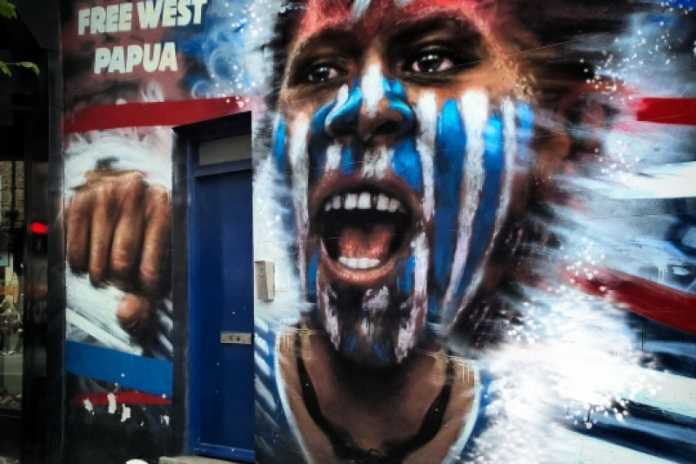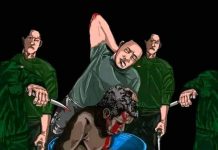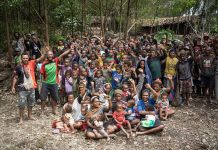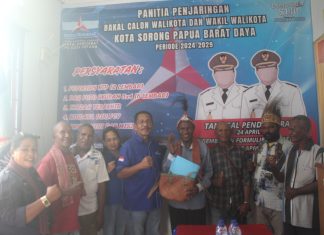JAYAPURA, SUARAPAPUA.com — The Indonesian government’s decision to officially designate armed groups affiliated with the Free Papua Movement (OPM) as terrorist organizations once again shows its lack of willingness to engage with the real roots of the ongoing conflict in Papua and West Papua, Amnesty International said today.
“Labeling armed groups in Papua as terrorist organizations does nothing to help the Papuan people – if anything it only increases the potential for even further human rights violations,” Amnesty International Indonesia Executive Director Usman Hamid said.
On 29 April, Coordinating Political, Legal and Security Affairs Minister Mahfud MD announced that “organizations and people in Papua who commit mass violence are categorized as terrorists”, without mentioning the OPM by name. However, in official National Counterterrorism Agency (BNPT) documents seen by Amnesty International, the agency specifically refers to its plan to designate the OPM as a terrorist organization.
“Based on our monitoring, military and police personnel allegedly often justify the killing of Papuan residents by claiming that they were members of the Free Papua Movement or ‘armed criminal groups’ without any clear evidence – claims that are often denied by local residents and church leaders. The ‘terrorist’ label will only serve as further justification for such terrible human rights abuses.”
Amnesty International Indonesia’s data also shows that between February 2018 and December 2020 there have been at least 47 cases of suspected unlawful killings by security forces in the provinces of Papua and West Papua, with a total of 80 victims. In 2021 alone there have been at least five such cases, resulting in seven victims.
“The government has allegedly continued to turn a blind eye to the growing list of human rights violations allegedly committed by state actors in Papua and West Papua. As long as this impunity is not addressed, continued crackdowns against Papuans, whether labeled as ‘criminals’, ‘separatists’ or ‘terrorists’ will only serve to heighten the fear and mistrust many Papuans feel towards the Indonesian government and security forces,” Usman said.
Amnesty International in no way rejects the investigation. arrest. and prosecution of members of the armed groups who have allegedly committed crimes. Indeed, authorities should conduct a swift, thorough, impartial and independent into such crimes and ensure that those responsible are brought to trial according to prevailing law and international human rights standards. However, the terrorist designation will do nothing to protect victims of the armed groups but rather facilitates potential violations by state security forces.
The designation would allow security forces to use the 2018 Anti-Terrorism Law, which Amnesty International has previously criticized for its potential in some provisions to undermine human rights, in acting against suspected OPM members. The law grants law enforcement the power to extend pre-trial detention of suspects to up to 221 days – a blatant violation of the right of anyone arrested on a criminal charge to be brought promptly before a judge and be tried within a reasonable time or to be released.
The law also expands the use of military personnel in counterterrorism operations, which further increases the likelihood of excessive use of force and other human rights violations.
Even before the terrorist designation, law enforcement has acted harshly against those who openly support the Papuan independence movement, often using treason charges against peaceful protests. In 2020, 12 Papuans and one non-Papuan activist were found guilty of treason for participating in peaceful protests in Jakarta and Jayapura, in a clear violation of their rights to freedom of expression and freedom of assembly.
“The ‘terrorist’ designation can potentially be used to further limit the rights of Papuans to peacefully express their political beliefs,” Usman said. “This combined with the problematic provisions in the Anti-Terrorism Law and the lack of accountability for security forces in the region makes this decision yet another blight on the government’s long list of missteps in Papua and West Papua.”
Amnesty International takes no position whatsoever on the political status of any province of Indonesia, including on calls for independence. However, the organization considers that the right to freedom of expression protects the right to peacefully advocate for independence or any other political solutions that do not involve incitement to discrimination, hostility or violence.
It is also important to underline that the right to freedom of expression and assembly are, respectively, guaranteed by Articles 19 and 21 of the International Covenant on Civil and Political Rights (ICCPR). Both freedom of expression and assembly must be exercised in a non-discriminatory manner, as envisaged in Article 26 of the ICCPR.
Although freedom of expression and assembly may be restricted, such limits must be provided and defined by law, pursuing a legitimate, necessary and proportionate goal to achieve their protective function. The Office of the United Nations High Commissioner for Human Rights in the Human Rights, Terrorism, and Counter-terrorism also said that: “While the right to freedom of association may be subject to derogations and limitations under most human rights treaties, clear safeguards must exist to ensure that they are not used to curb the rights of political opposition parties, trade unions or human rights defenders.” (*)






